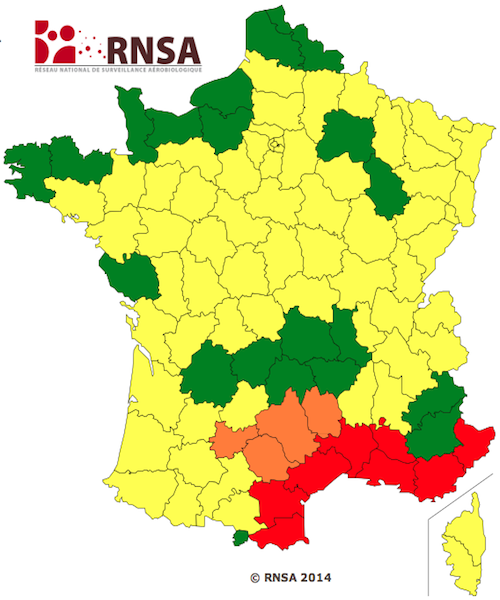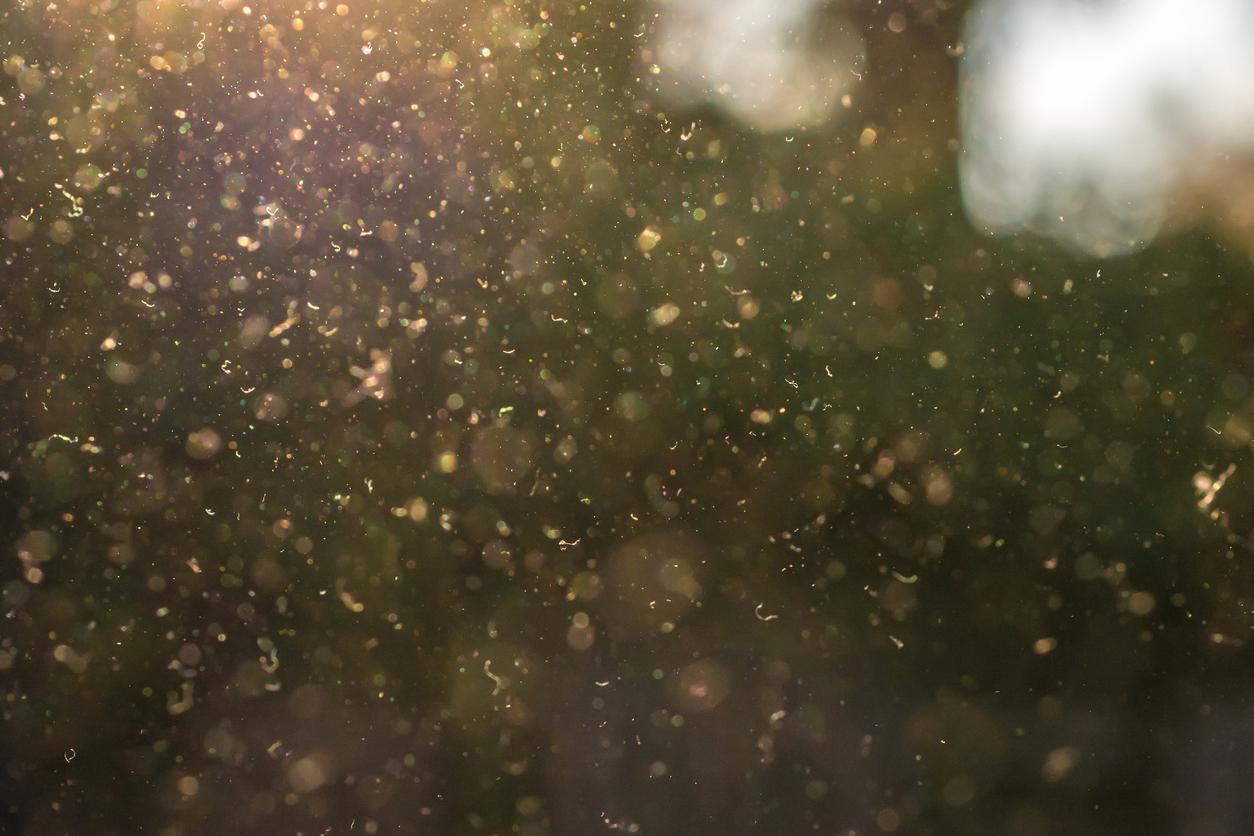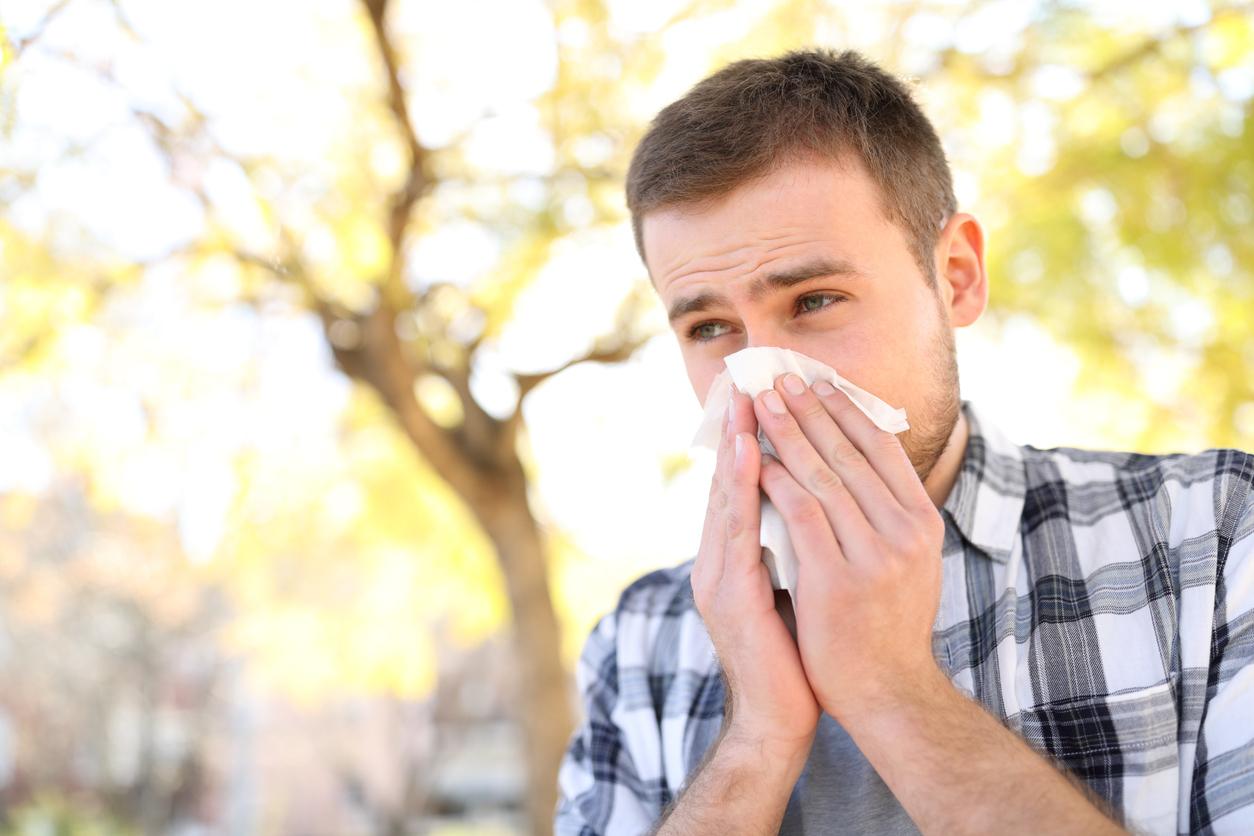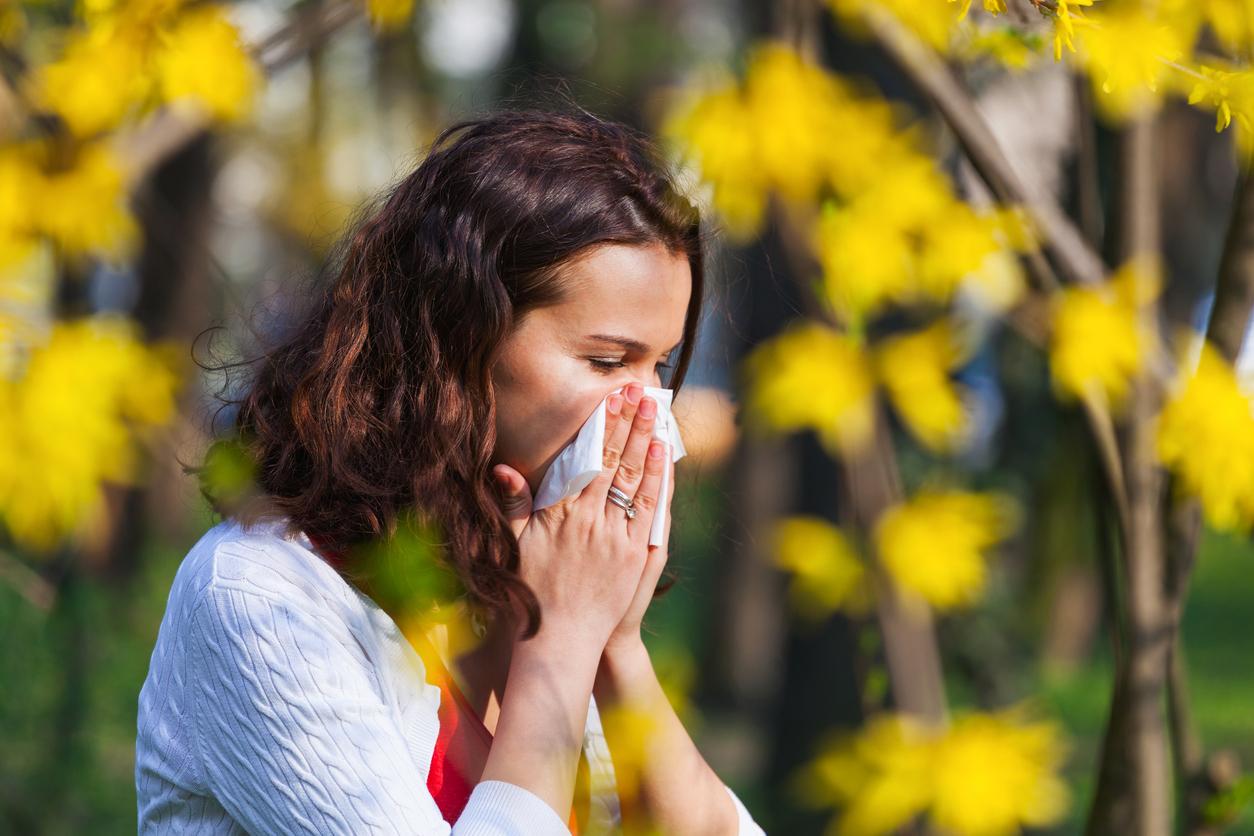For the National Aerobiological Surveillance Network, nature is in full swing in France. Conjunctivitis and rhinitis will start soon.

This year, spring arrives early in the French calendar. And like every year, it carries its share of pollens and of course allergies with it. As such, the National Aerobiological Surveillance Network (RNSA) publishes its pollen vigilance map for the current week (from March 7 to 14, 2014).
Maximum risk on the Mediterranean coast for cypress
In its latest bulletin, the RNSA specifies that the current climatic conditions in France have favored the arrival of pollens. “Across France, a high pressure system sets in next week. Sun and pleasant temperatures are provided by the weather services. Nature is in full swing and this is the problem for allergy sufferers, ”said the press release.
Times are particularly hard for those allergic to cypress pollen because these pollens are present throughout the territory. And “they will not release the pressure”, especially on the Mediterranean coast. The RNSA even indicates that this strong presence in this area maintains a maximum allergic risk and everywhere else a low to locally medium risk.
Hazelnut pollens are now very present over a large northern part of the territory with, however, “a low allergic risk”. And the latter gradually finishes its flowering, but unfortunately for the French, other pollens will take advantage of these mild weather conditions to settle in the territory.
Among them, alder, ash and poplar will soon be present throughout the country, indicates the Network with a “low allergic risk, but which can locally reach an average level. In addition, pollens from willows and grasses are already present on the West Coast, but with a very low allergic risk.
In addition, a forecast model set up by the RNSA announces the great arrival of birch pollens for March 15. At the same time, charming pollens are already appearing on the Network’s accounts.
Conjunctivitis and rhinitis will start soon
Faced with all these risks, the Network points out that it is above all the mixtures that allergics should fear. Not enough to reassure the French given the multiplicity of allergens currently present in France.
As such, the Network adds that “high pressure weather conditions will also promote high levels of atmospheric pollution in a large number of cities, which can cause an exacerbation of symptoms in people most sensitive to pollen. Conjunctivitis and rhinitis are likely to start in earnest, ”he concludes.

![]()
* The predicted allergic risk is established from the quantities of pollen measured, weather forecasts for the coming days, the phenological stage of the plants and the intensity of the symptoms observed by doctors in their patients allergic to pollen.
Source: RNSA
.

















